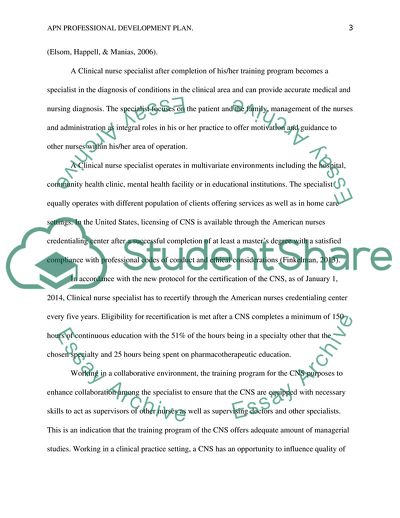Cite this document
(APN professional Development Plan Research Paper, n.d.)
APN professional Development Plan Research Paper. https://studentshare.org/nursing/1860493-professional-development-of-a-clinical-nurse-specialist
APN professional Development Plan Research Paper. https://studentshare.org/nursing/1860493-professional-development-of-a-clinical-nurse-specialist
(APN Professional Development Plan Research Paper)
APN Professional Development Plan Research Paper. https://studentshare.org/nursing/1860493-professional-development-of-a-clinical-nurse-specialist.
APN Professional Development Plan Research Paper. https://studentshare.org/nursing/1860493-professional-development-of-a-clinical-nurse-specialist.
“APN Professional Development Plan Research Paper”. https://studentshare.org/nursing/1860493-professional-development-of-a-clinical-nurse-specialist.


